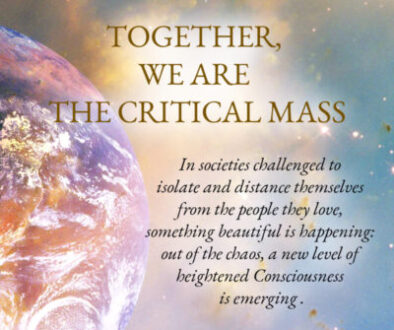How Intuition Can Work For You
Identifying Intuitions
I believe, discovering your personal Intuition involves practicing a particular kind of alertness called, MINDFULNESS. Here, we learn to become detached observers of our experience, employing a habit of watchfulness over every occurrence as we proceed through our daily lives. This Mindfulness involves close observation of what happens in the outer world, but also being attuned to the various thoughts and feelings that show up in our minds. The idea is to stay impartial and patiently monitor everything you feel or think, including ideas, images, emotions, and automatic reactions. Be the objective viewer without getting distracted by memories, worries, regrets, unfinished plans, or any other ego concerns. When distraction does occur, catch yourself and return to the observer position quickly.
Once we practice this enough, we cease to be continually swept away. We can then concentrate on distinguishing and sorting through the ever-changing array of mental sensations that stream through our minds. It is especially important to let go of what I call “useless memories and ego chatter” in our heads—for example, what I should have said to a person who insulted me.
Also, and perhaps most crucial, we must discern between ordinary, calculative thoughts and the more mystical, Intuitive thoughts and feelings. Here’s the key difference: calculative thoughts are the words we consciously think to ourselves when processing a general problem. This is a significant thought process, but they are not Intuitions. Intuitions are spontaneous notions that appear to come from nowhere. They seem just to occur to us with a hint of inspiration and discovery, yet we didn’t think of them, in the calculative sense. While our egos may well be in the habit of taking credit for such thoughts (“aren’t we smart”), upon closer inspection, we can see they are obtained from some deeper source within us.
Let’s say we are pondering how we might find a way to work for ourselves and earn more income. In calculative thoughts, we speak words to ourselves in the same way we might discuss the issue with another person; applying our rational understanding of how the world works, and using sound logic in the process. In this manner, we explore the question until we conclude that a particular course of action is reasonable and appropriate.
An Intuition, however, feels entirely different. It naturally develops as a spontaneous and fleeting idea that brings about clarity to a circumstance or a direct urge to do something. It may even appear as an image of us in the future, already in the process of acting in some way. It is not us personally speaking to ourselves, although it may arrive into our minds as a concept that we formulate into words.
And again, while a calculative thought is a provoking effort to reason with a question we have, an Intuition, on the other hand, usually brings a hint of emotion. One that feels like excitement or inspiration, maybe even a sense of “pursuing one’s destiny.” This is because it is the Intuition’s higher purpose to move us forward on the path of SPIRITUALITY, intended creativity and accomplishment.
In fact, I believe our Intuitions are elemental to the process of downloading our higher, divine intelligence through an increased spiritual connection. Yes, we have free will, and we can exercise our reasons and preferences at every turn. But, recognizing our inner, spiritual intelligence opens us up to a life guidance. One that addresses how we can break through old habits and distractions, and then find and evolve to our most exciting and prosperous, life purpose.




